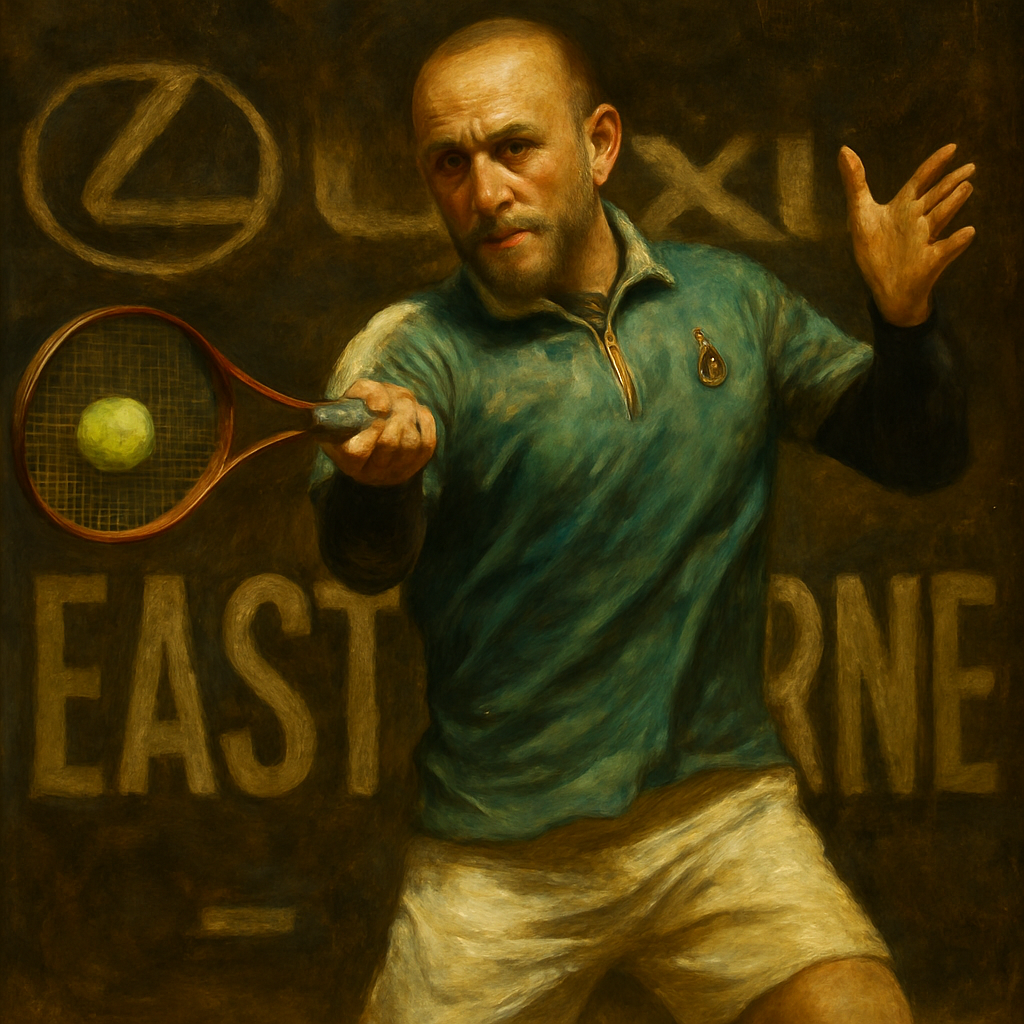EASTBOURNE — British tennis star Dan Evans has launched a scathing critique of the Eastbourne International tournament organizers after he and fellow Brits were overlooked for wildcard entries, claiming "this wouldn't happen in another country." The world No. 58 expressed frustration after being forced to compete in qualifying rounds despite his ranking.
Evans' Outburst: A Reaction to Wildcard Snub
The 34-year-old Birmingham native, who reached the semifinals at Eastbourne in 2021, didn't mince words when discussing the tournament's decision to award wildcards to lower-ranked international players instead of homegrown talent. "It's disappointing, to say the least," Evans told reporters after his first qualifying match. "I've played here many times and given my all for British tennis."
The controversy stems from tournament director Gavin Fletcher's decision to award main draw wildcards to:
- China's Shang Juncheng (ranked 89th)
- Australia's Rinky Hijikata (ranked 102nd)
- France's Giovanni Mpetshi Perricard (ranked 117th)
Organizational Issues Under Fire
Evans didn't stop at criticizing the wildcard decisions, also taking aim at broader organizational problems at the ATP 250 event. "The facilities here have been subpar compared to other tournaments at this level," he remarked, citing specific issues with player amenities and practice court availability.
Key Complaints Highlighted
Among Evans' primary grievances:
- Inadequate locker room facilities for qualifying players
- Limited practice court access during peak hours
- Poor communication about scheduling changes
- Transportation issues between hotel and venue
Historical Context of British Discontent
This isn't the first time Eastbourne has faced criticism from British players. In 2019, Kyle Edmund voiced similar concerns about wildcard allocations. The tournament has traditionally positioned itself as a key warm-up event for Wimbledon, but recent decisions have raised questions about its commitment to developing British talent.
A tournament spokesperson responded to Evans' comments, stating: "Wildcard decisions are made considering multiple factors including player development, tournament partnerships, and the overall competitive field. We value all players' contributions and work hard to provide excellent facilities."
Broader Implications for British Tennis
The incident has sparked debate about how British tournaments support home players. Unlike France's Roland Garros or Australia's Melbourne Park events, which routinely prioritize local talent, UK tournaments have faced criticism for being too international in their approach. "There needs to be better balance," argued former British No. 1 Greg Rusedski in a BBC interview.
Statistics reveal a concerning trend for British players at Eastbourne:
- Only 3 British men received main draw wildcards in the past 5 years
- 12 wildcards were awarded to international players in same period
- British players account for just 15% of main draw entries since 2019
Player Support and Backlash
Evans' comments have received mixed reactions from peers. Some international players defended the tournament's decisions, while several British players privately expressed agreement with Evans' assessment. "Dan's speaking truth," tweeted British doubles specialist Neal Skupski, though he later deleted the post.
The controversy comes at a sensitive time for British tennis, with the LTA facing scrutiny over its player development programs. Evans, known for his outspoken nature, has positioned himself as a vocal advocate for change. "If we don't support our own players, who will?" he questioned in his post-match press conference.
Looking Ahead: Potential Reforms
The incident has prompted calls for clearer wildcard criteria at UK tournaments. Suggestions from tennis analysts include:
- Establishing a points-based wildcard system favoring domestic players
- Creating a British-only wildcard reserved for the highest-ranked home player not automatically qualifying
- Improving communication between tournament organizers and British players
As Evans prepares for Wimbledon, the debate continues about the role of national tournaments in player development. "This isn't just about me," Evans stressed. "It's about the next generation of British players coming through."
The LTA has announced it will review wildcard allocation policies across British tournaments following the controversy. Meanwhile, Evans' comments have certainly achieved one thing - putting the treatment of British players at home tournaments firmly in the spotlight as the grass court season reaches its climax.

